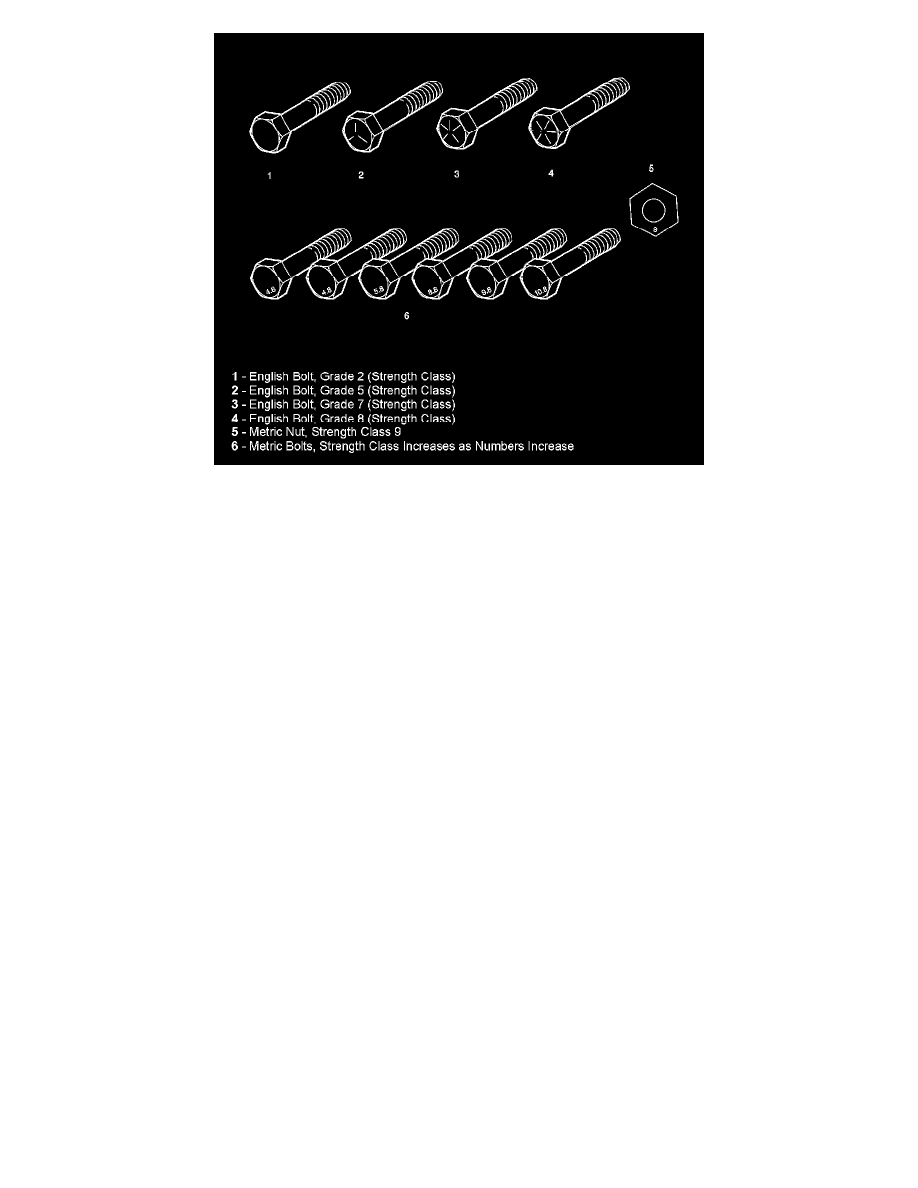Impala V6-3.5L VIN N (2006)

The most commonly used metric fastener strength property classes are 9.8 and 10.9. The class identification is embossed on the head of each bolt. The
English, inch strength classes range from grade 2 to grade 8. Radial lines are embossed on the head of each bolt in order to identify the strength class.
The number of lines on the head of the bolt is 2 lines less than the actual grade. For example, a grade 8 bolt will have 6 radial lines on the bolt head.
Some metric nuts are marked with a single digit strength identification number on the nut face.
The correct fasteners are available through GMSPO. Many metric fasteners available in the aftermarket parts channels are designed to metric
standards of countries other than the United States, and may exhibit the following:
-
Lower strength
-
No numbered head marking system
-
Wrong thread pitch
The metric fasteners on GM products are designed to new, international standards. The following are the common sizes and pitches, except for special
applications:
-
M6.0 X 1
-
M8 X 1.25
-
M10 X 1.5
-
M12 X 1.75
-
M14 X 2.00
-
M16 X 2.00
PREVAILING TORQUE FASTENERS
Prevailing torque fasteners create a thread interface between the fastener and the fastener counterpart in order to prevent the fastener from loosening.
ALL METAL PREVAILING TORQUE FASTENERS
These fasteners accomplish the thread interface by a designed distortion or deformation in the fastener.
NYLON INTERFACE PREVAILING TORQUE FASTENERS
These fasteners accomplish the thread interface by the presence of a nylon material on the fastener threads.
ADHESIVE COATED FASTENERS
